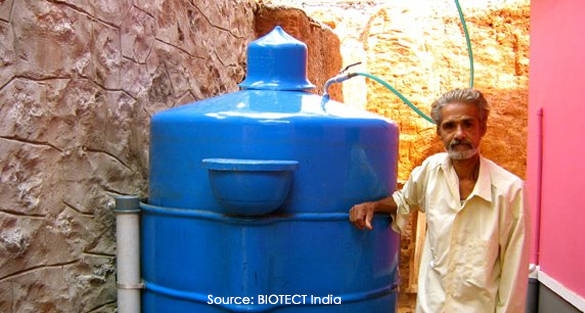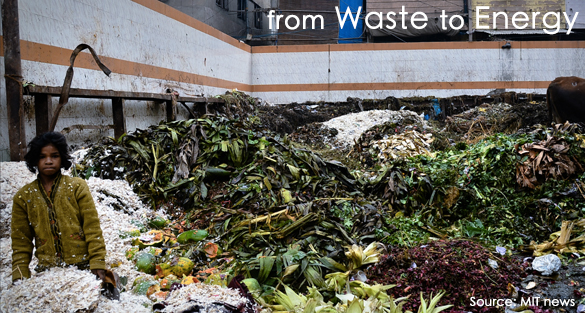There are so many ways for us to reduce food waste, yet, apart from reducing, recycling is also very important.
Apart from leaving food waste directly to landfill, there are other ways which can transform food waste into something more valuable – renewable energy as well as fertilisers.
Traditionally in India, food waste is dropped on the ground where it is eaten by birds and animals, but it is becoming less acceptable in the city. It doesn’t only cause smell, debris, but also attract rats.
Waste can be also a cost-effective and sustainable source of fuel. BIOTECH, who has received the Ashden Award for Sustainable Energy in 2007, has succeeded in tackling the problem of the dumping of food waste in the streets of Kerala through the installation of biogas plants that use the food waste to produce gas for cooking and, in some cases, electricity for lighting; the residue serves as a fertiliser.
To date BIOTECH has built and installed an impressive 12,000 domestic plants (160 of which also use human waste from latrines to avoid contamination of ground water), 220 institutional plants and 17 municipal plants that use waste from markets to power generators.

Image above: portable biogas plants
The disposal of food waste and the production of clean energy are not the only benefits of BIOTECH’s scheme. The plants also replace the equivalent of about 3.7 tonnes/day of LPG and diesel which in turn results in the saving of about 3,700 tonnes/year of CO2, with further savings from the reduction in methane production as a result of the uncontrolled decomposition of waste, and from the transport of LPG.
Source of information: Ashden India










